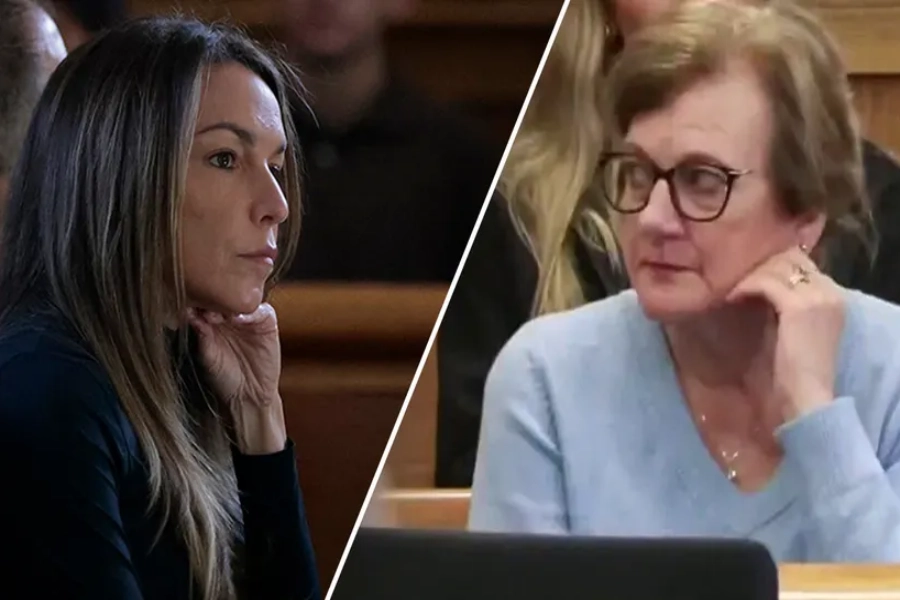The Karen Read case has captivated national attention due to its blend of criminal allegations, police involvement, and claims of investigative misconduct. As the second-degree murder trial enters its seventh week, the legal questions surrounding the death of Boston Police Officer John O’Keefe remain unresolved. This article presents an in-depth legal analysis of the case, examining key evidence, legal strategies, and implications for police accountability in the U.S. justice system.

Background: The Death of Officer John O’Keefe
In January 2022, the body of John O’Keefe was found in the snow outside the Canton home of fellow officer Brian Albert. Karen Read, O’Keefe’s girlfriend at the time, is accused of manslaughter and second-degree murder, allegedly for backing her Lexus SUV into him after a night of heavy drinking.
According to prosecutors, Read left O’Keefe to die in subzero temperatures after an argument. However, the defense has introduced a counter-narrative, claiming that O’Keefe may have been attacked inside the house and that a cover-up involving other police officers followed.
Michael Proctor’s Role and Allegations of Investigative Misconduct
One of the most contentious aspects of the trial is the role of former state trooper Michael Proctor, the original lead investigator. During court proceedings, it was revealed that Proctor sent crude and biased text messages, referring to Read in offensive terms and expressing strong personal opinions about the case.
The defense argues that Proctor’s communications suggest a clear bias that may have affected the investigation’s integrity. These revelations have become central to the trial, as they challenge the credibility and impartiality required in criminal investigations, especially when law enforcement officers are both investigators and potential suspects.
Legal Strategies: Prosecution vs. Defense
The prosecution’s strategy is to focus on forensic evidence that supports their theory that Read intentionally hit O’Keefe with her vehicle. Prosecutors argue that regardless of Proctor’s misconduct, physical evidence and timelines support their version of events.
On the other side, the defense has centered its argument on discrediting the investigation. They assert that O’Keefe may have been attacked inside the house and later placed outside to simulate a car accident. They further allege that fragments from Read’s car were planted at the scene and that important surveillance footage was withheld or destroyed.
These are serious allegations, which—if proven—could undermine the state’s case entirely and even open the door for civil suits or criminal charges against officers involved in the investigation.

Expert Testimony: A Crucial Legal Battleground
Expert witnesses often play a pivotal role in shaping jurors’ understanding. In this case, Dr. Marie Russell, a veterinary forensics expert, testified that O’Keefe’s injuries may have come from a dog attack, not a vehicle. This is significant because a dog was reportedly present inside the Albert home the night of the incident.
The prosecution countered by questioning Russell’s qualifications and pointing out that she had never testified in a homicide case. The court must now determine whether her input is scientifically valid and if it introduces reasonable doubt into the case.
Legal and Ethical Implications: Police Bias and Justice
From a broader legal standpoint, the Karen Read trial raises systemic issues. If police officers indeed tampered with evidence or shielded one another from accountability, the consequences extend far beyond this case.
Allegations of institutional bias, conflicts of interest, and selective prosecution highlight the urgent need for oversight mechanisms in investigations involving fellow officers. The implications for public trust in the criminal justice system are significant, especially in cases where law enforcement acts as both party and investigator.
What’s Next in the Karen Read Trial?
As the trial continues, the outcome remains uncertain. The defense will likely continue highlighting misconduct and pushing for reasonable doubt based on gaps in the timeline and inconsistent witness testimonies. The prosecution must prove beyond reasonable doubt that Read intentionally caused O’Keefe’s death—despite the internal conflicts and credibility issues among their own investigative team.
Regardless of the verdict, this case is likely to be cited in future legal discourse about police misconduct, chain of evidence, and conflict of interest in investigations involving law enforcement.
Conclusion
The Karen Read trial stands as a complex legal battle, underscoring the need for impartial investigations, especially when law enforcement officers are implicated. As more details emerge, the legal system faces a pivotal moment: either reinforce accountability or risk further eroding public trust. Whether Karen Read is acquitted or convicted, this case is poised to shape discussions on justice, transparency, and police integrity for years to come.
FAQ
1. What are the charges against Karen Read?
Karen Read faces charges of manslaughter and second-degree murder in connection with the death of her boyfriend, Boston Police Officer John O’Keefe. The prosecution claims she intentionally ran over him with her car after a night of drinking.
2. Why is Michael Proctor’s role important in the case?
Michael Proctor, the former lead investigator, is central to the defense’s argument due to his biased text messages and alleged misconduct. These actions have raised questions about whether the investigation was compromised.
3. What is the defense’s argument in the case?
The defense argues that O’Keefe was not hit by a vehicle but was possibly attacked by other police officers and later abandoned outside. They also allege the planting of evidence and investigative bias.
4. How does expert testimony play a role in the trial?
Expert testimony, especially from Dr. Marie Russell, suggests that O’Keefe’s injuries could be from a dog attack, not a car. The prosecution has contested the validity and relevance of this expert opinion.
5. What impact will the outcome of the case have?
Beyond Karen Read’s personal fate, the trial’s outcome could affect how cases involving police officers are prosecuted and investigated, and potentially lead to reforms in investigative oversight and accountability.

